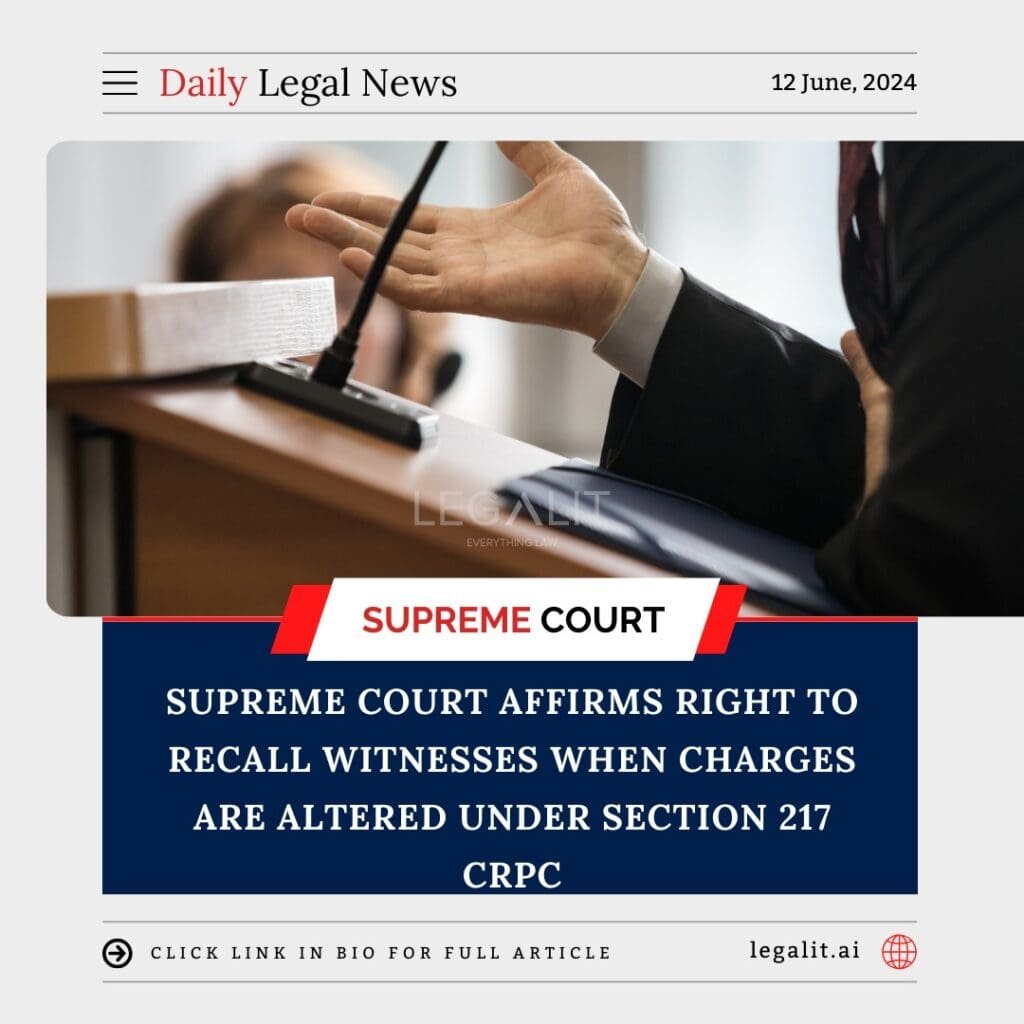
The Supreme Court of India has reaffirmed that under Section 217 of the Code of Criminal Procedure (CrPC), when a court alters or adds charges during a trial, both the prosecution and the accused must be given the opportunity to recall or re-examine witnesses. This decision is pivotal in ensuring fair trial procedures and protecting the rights of both parties involved in criminal proceedings.
Key Provisions of Section 217 CrPC
Section 217 of the CrPC mandates that when a charge is altered or added by the court after the commencement of the trial, the following steps must be taken:
- Recall and Re-examination of Witnesses: Both the prosecutor and the accused are allowed to recall or re-summon any witness who has already been examined, to address the changes or additions to the charges.
- Calling Additional Witnesses: The court may also permit either party to call any further witnesses who may be material to the new charges.
The provision ensures that the accused is not caught off-guard by new charges and that both parties have a fair chance to present their case in light of the new developments【168†source】【169†source】.
Supreme Court’s Observations
The Supreme Court emphasized that this procedural safeguard is crucial for upholding the principles of natural justice. In its rulings, the Court highlighted that failing to provide this opportunity could result in a miscarriage of justice, as the accused might not be fully aware of or prepared to meet the new charges. The Court also noted that this practice helps in preventing any undue delay or vexation caused by recalling witnesses without valid reasons【170†source】【171†source】.
Practical Implications
This ruling has significant implications for the conduct of criminal trials in India:
- Ensuring Fairness: By allowing the recall and re-examination of witnesses, the court ensures that the trial remains fair and transparent.
- Preventing Misuse: The provision also prevents the misuse of the judicial process by ensuring that any changes to charges are not used to unduly prejudice or disadvantage any party.
- Maintaining Efficiency: It helps in maintaining the efficiency of the judicial process by providing a clear framework for addressing changes in charges without unnecessary delays.
In conclusion, the Supreme Court’s affirmation of the principles under Section 217 CrPC reinforces the importance of procedural fairness in criminal trials. This decision protects the rights of the accused while ensuring that the prosecution can present its case fully and fairly.